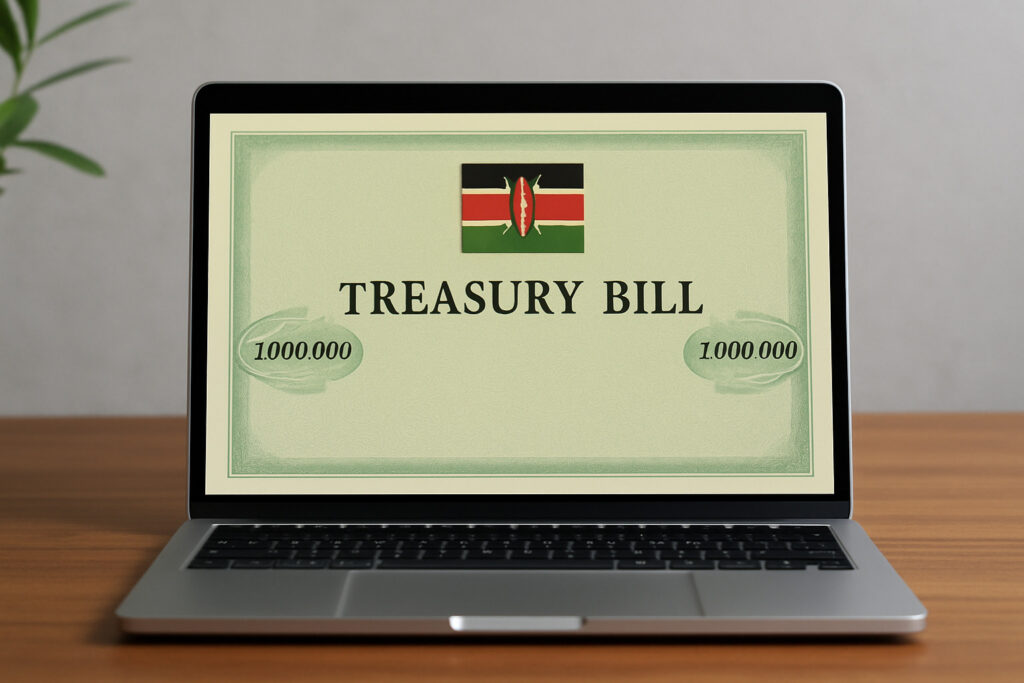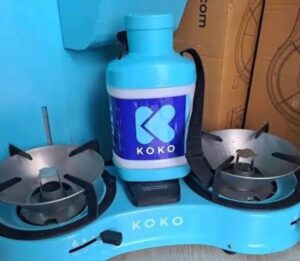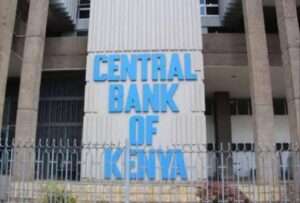
In a financial environment where risk and reward often go hand in hand, many investors are drawn to instruments that offer both security and steady returns.
For those seeking a low-risk investment option, Treasury Bills (T-Bills) in Kenya present an attractive opportunity.
T-Bills are short-term debt securities issued by the Central Bank of Kenya (CBK) on behalf of the government.
They are primarily used to raise funds for short-term public expenditures, while offering investors a predictable return within a relatively short time frame.
What Are Treasury Bills?
Treasury Bills are government-backed debt instruments with maturities of 91, 182, or 364 days.
When you invest in a T-Bill, you are essentially lending money to the government for a fixed period.
In return, the government repays you the face value of the T-Bill at maturity, having initially sold it to you at a discount.
For instance, if a 91-day T-Bill has a face value of Sh100,000 and is sold at Sh98,000, the investor earns the Sh2,000 difference as interest.
Because they are backed by the government and have short tenors, T-Bills are widely considered one of the safest investment instruments available in the Kenyan financial market.
How to Invest in Treasury Bills in Kenya
T-Bills are issued via weekly auctions conducted by the CBK, typically every Monday. Investors can participate in one of two ways:
Direct Investment via the Central Bank
Individuals can open a Central Depository System (CDS) account with the CBK through its Direct Access System (DAS).
Once registered, investors can submit bids directly during the auction process. The minimum investment amount is Sh100,000.
Indirect Investment via Commercial Banks or Investment Agents
For those unfamiliar with the CBK auction process, investing through a commercial bank or licensed investment dealer may be a simpler option.
These intermediaries bid on behalf of clients, making the process more accessible particularly for first-time investors.
Current Treasury Bill Yields
T-Bill interest rates fluctuate based on market demand, economic conditions, and monetary policy. According to recent CBK auction data:
91-day T-Bills: Yield approximately 15–16 percent per annum
182-day T-Bills: Yield approximately 16–17 percent per annum
364-day T-Bills: Yield approximately 17–18 percent per annum
How Returns Are Calculated
T-Bills are issued at a discount and redeemed at full face value. The return is the difference between the purchase price and the face value.
For example, if you invest Sh50,000 in a 91-day T-Bill with a 15% annualized yield:
Return = Sh 50,000 × 15% × (91 ÷ 365) ≈ Sh 1,875
This means you’ll receive Sh51,875 at maturity.
Key Benefits of Investing in T-Bills
Low Risk,Backed by the government, T-Bills carry minimal risk of default.
Short-Term Commitment,With maturities of less than a year, T-Bills are ideal for investors seeking flexibility.
Attractive Yields, T-Bill rates are generally competitive, particularly when compared to traditional savings accounts.
Liquidity, Though they are designed to be held until maturity, T-Bills can be sold in the secondary market if early access to funds is needed.
Things to Consider Before Investing
While T-Bills are relatively safe and accessible, investors should be mindful of several factors:
Minimum Investment Requirement
The entry point for investing in T-Bills is Ksh 100,000, which may be prohibitive for small-scale investors. This threshold applies whether you’re investing directly through the CBK or via an intermediary.
Auction Competitiveness
T-Bills are sold through a competitive bidding process. If you bid too low a return, your offer may be rejected.
Alternatively, you can place a non-competitive bid, where you accept the average yield determined during the auction, although this comes with some uncertainty.
Taxation
The returns on T-Bills are subject to a 15 percent withholding tax, which slightly reduces the net income received. It’s important to account for this when calculating your actual returns.
Interest Rate Risk
Yields can vary week-to-week depending on broader economic factors. If interest rates rise after you invest, newer T-Bills may offer better returns than those you currently hold.
Liquidity Considerations
While T-Bills are tradable, selling before maturity may not always guarantee favorable pricing or immediate liquidity, especially in a thin secondary market.
Market Knowledge Required
Investing directly requires familiarity with the CBK auction process, bid submission deadlines, and yield estimations. New investors might need guidance or prefer to go through experienced intermediaries.
Rewarding investment
Kenya’s Treasury Bills provide a secure and rewarding investment option for individuals and institutions alike.
With competitive returns, government backing, and flexible durations, T-Bills are particularly well-suited for conservative investors focused on capital preservation and predictable income.
However, like all investments, they come with certain requirements and risks.
Prospective investors should conduct due diligence or seek professional advice to ensure they align T-Bill investments with their financial goals and risk appetite.





